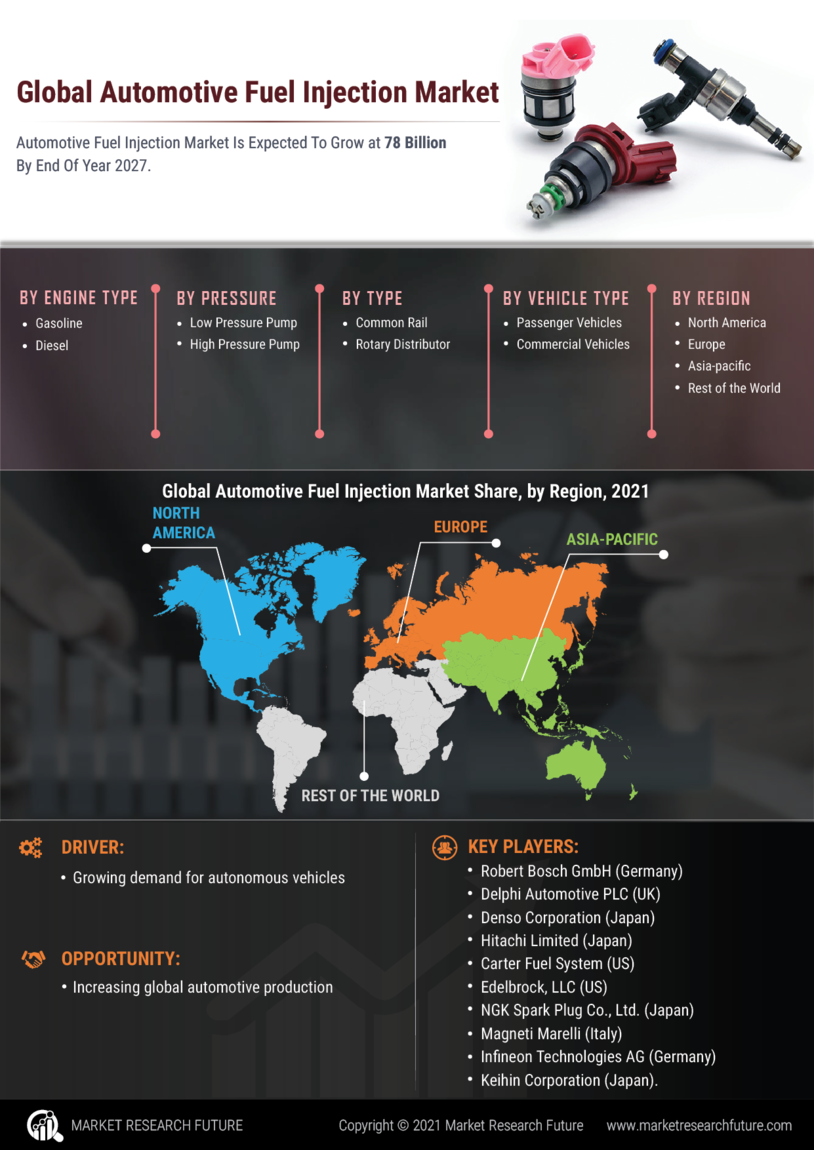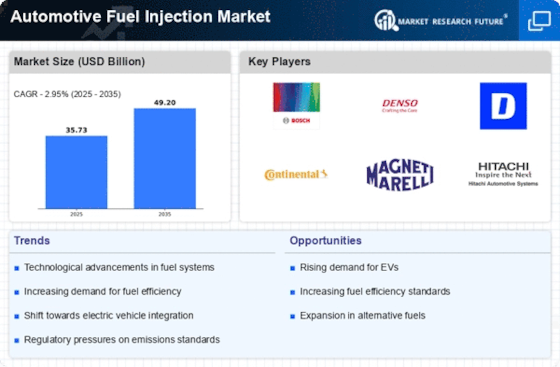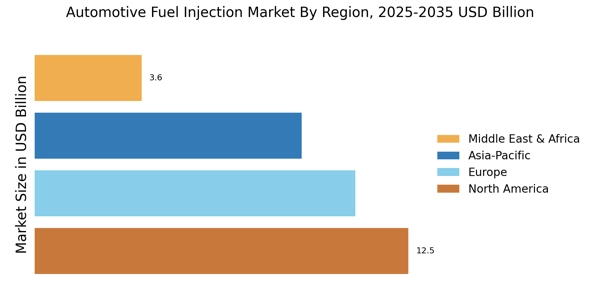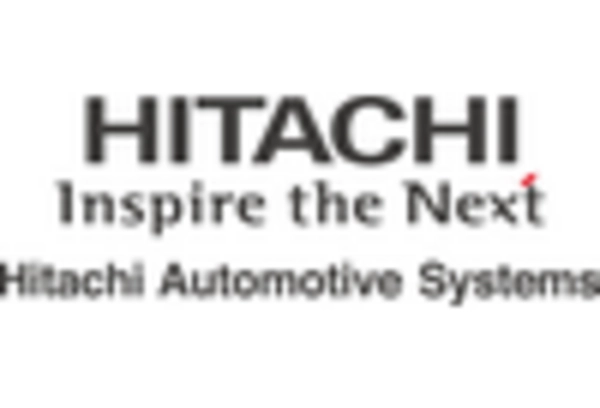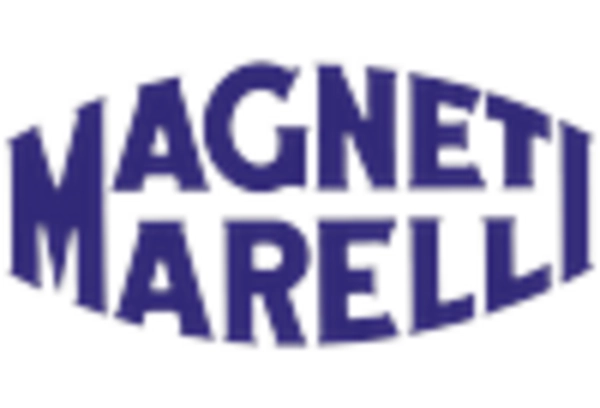Growth of the Automotive Sector
The Automotive Fuel Injection Market is closely tied to the overall growth of the automotive sector. As vehicle production increases, so does the demand for advanced fuel injection systems. Recent data indicates that the automotive industry is projected to grow at a CAGR of around 4% in the coming years, driven by rising disposable incomes and urbanization. This growth is likely to result in a higher demand for fuel-efficient and high-performance vehicles, which in turn will boost the fuel injection market. Manufacturers are responding by enhancing their product offerings, focusing on systems that provide better fuel economy and lower emissions. The expansion of the automotive sector is expected to create new opportunities for fuel injection technology providers.
Increasing Demand for Fuel Efficiency
The Automotive Fuel Injection Market is experiencing a notable surge in demand for fuel-efficient vehicles. As consumers become more environmentally conscious and fuel prices fluctuate, manufacturers are compelled to innovate. The market for fuel injection systems is projected to grow at a compound annual growth rate (CAGR) of approximately 6% over the next few years. This growth is driven by the need for advanced fuel management systems that optimize combustion and reduce emissions. Consequently, automotive manufacturers are investing heavily in research and development to enhance fuel injection technologies, which is likely to further propel the market. The integration of direct fuel injection systems is particularly noteworthy, as it allows for better fuel atomization and improved engine performance, thereby aligning with consumer preferences for efficiency.
Consumer Preference for Performance Vehicles
The Automotive Fuel Injection Market is significantly impacted by changing consumer preferences, particularly the growing inclination towards performance vehicles. As consumers seek enhanced driving experiences, manufacturers are increasingly focusing on developing high-performance engines that require advanced fuel injection systems. This trend is evident in the rising popularity of turbocharged engines, which rely on precise fuel delivery for optimal performance. The market for performance-oriented fuel injection systems is anticipated to grow, as manufacturers aim to meet consumer demands for speed and efficiency. Additionally, the increasing availability of aftermarket performance parts is likely to further stimulate the market, as enthusiasts seek to upgrade their vehicles with advanced fuel injection technologies.
Regulatory Compliance and Emission Standards
The Automotive Fuel Injection Market is significantly influenced by stringent regulatory compliance and evolving emission standards. Governments worldwide are implementing more rigorous regulations aimed at reducing vehicular emissions, which necessitates the adoption of advanced fuel injection technologies. For instance, the introduction of Euro 6 and similar standards has compelled manufacturers to enhance their fuel injection systems to meet these requirements. This regulatory landscape is expected to drive the market, as companies seek to develop systems that not only comply with current standards but also anticipate future regulations. The market is likely to see an increase in demand for technologies such as multi-port fuel injection and direct injection systems, which are designed to minimize emissions while maximizing fuel efficiency.
Technological Innovations in Fuel Injection Systems
The Automotive Fuel Injection Market is witnessing rapid technological innovations that are reshaping the landscape. Advancements in electronic fuel injection (EFI) systems, including the integration of artificial intelligence and machine learning, are enhancing the precision and efficiency of fuel delivery. These innovations are expected to improve engine performance and reduce emissions, aligning with consumer demands for cleaner and more efficient vehicles. The market is projected to benefit from the development of smart fuel injection systems that can adapt to varying driving conditions. Furthermore, the rise of hybrid and electric vehicles is likely to stimulate further innovation in fuel injection technologies, as manufacturers seek to optimize performance across diverse powertrains.
